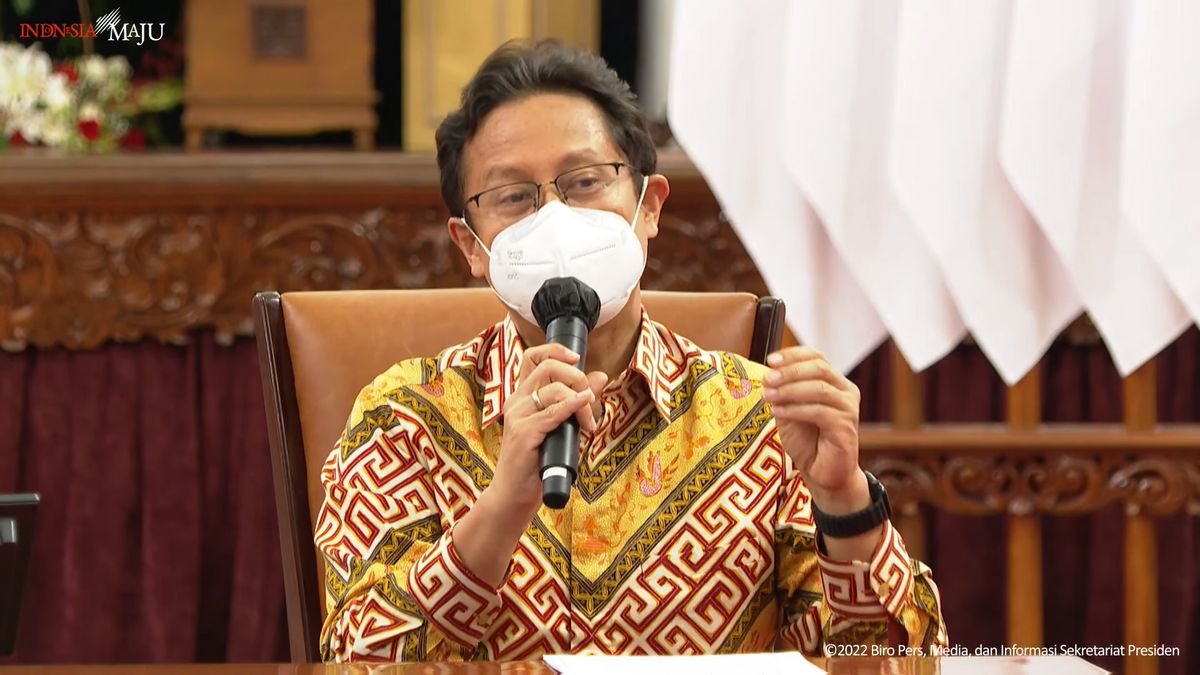Minister of Health Budi Gunadi Sadikin said, as many as 7,000 babies die each year due to congenital heart disease. This is because the number of specialist doctors with adequate abilities is still minimal in Indonesia.
“ The baby who was born in Indonesia is around 4.8 million a year. I heard from pediatricians that one by 100 of the children born have a congenital heart. So if 4.8 million for 100 there are 48 thousand Indonesian children with congenital heart every year, ” Budi said at the 2022 Performance Press Conference and the 2023 Working Program of the Ministry of Health which was followed online in Jakarta, Antara, Thursday, January 5.
Budi said that the number of babies born with congenital heart disease is far more than that of infants who died due to acute kidney failure due to a lack of specialist doctors to have heart surgery.
According to his calculations, of the 48 thousand babies born with congenital heart every year, 25 percent or around 12,500 children suffer from critical congenital heart disease.
Unfortunately, apart from the shortage of specialist doctors, Indonesia's ability to have heart surgery can only be around 5,000 operations. Not to mention the long queue time for heart services.
As a result, 7,000 thousand babies cannot be handled properly and optimally. Whereas the health service system in Indonesia should have been able to provide the best service, after 77 years of independence.
"Imagine our operating capacity is only 5,000, so 7,000 babies die every year, because of congenital heart disorders because we don't have enough specialists to have heart surgery even though we are 77 years of independence, sorry for our children," he said.
Budi also admitted that the competency-appropriate heart service was not evenly distributed in Indonesia. Because there are only 40 government hospitals that are able to serve the Catheterization Laboratory (Cathlab) or medical actions carried out in heart and angiography catheterization laboratories to determine the diagnostics of heart disease and blood vessels.
Meanwhile, there are only 10 hospitals that are able to perform open heart surgery. This means that the health system's ability is not comparable to the number of patients, especially for people with heart, stroke, and cancer.
Even though the three diseases are the highest contributors to death in Indonesian society. However, Budi stated that hospital financing services have been resolved by the current use of BPJS Kesehatan.
Budi stated that related to handling these problems, the Ministry of Health will focus on ensuring an increase in the ability of health services to improve through the existing six pillars of health transformation, and ensure that every health infrastructure becomes more adequate for public health in the future.
"So after we managed to solve the problem from the demand side side, because it was in terms of coverage from BPJS. Now we have to make sure the health infrastructure is prepared," said Budi.
The English, Chinese, Japanese, Arabic, and French versions are automatically generated by the AI. So there may still be inaccuracies in translating, please always see Indonesian as our main language. (system supported by DigitalSiber.id)
Most Popular Tags
#Prabowo Subianto #donald trump #Flood #ramadan #oil #gazaPopular
11 Maret 2025, 09:10













